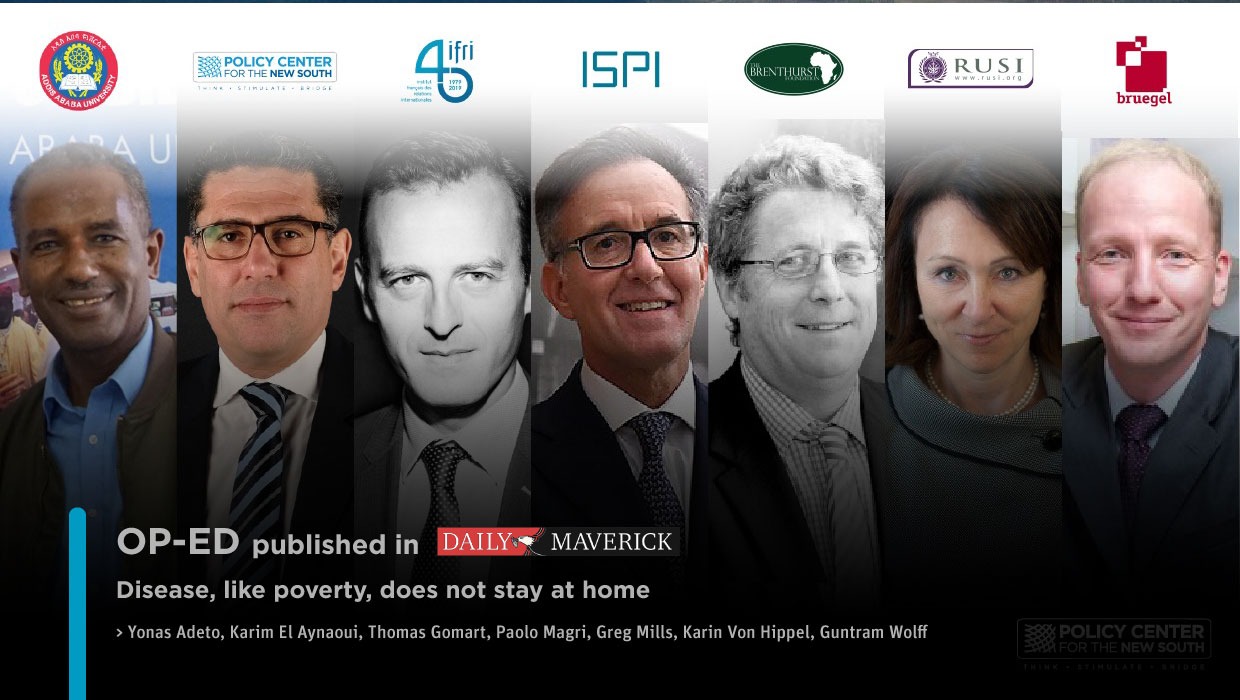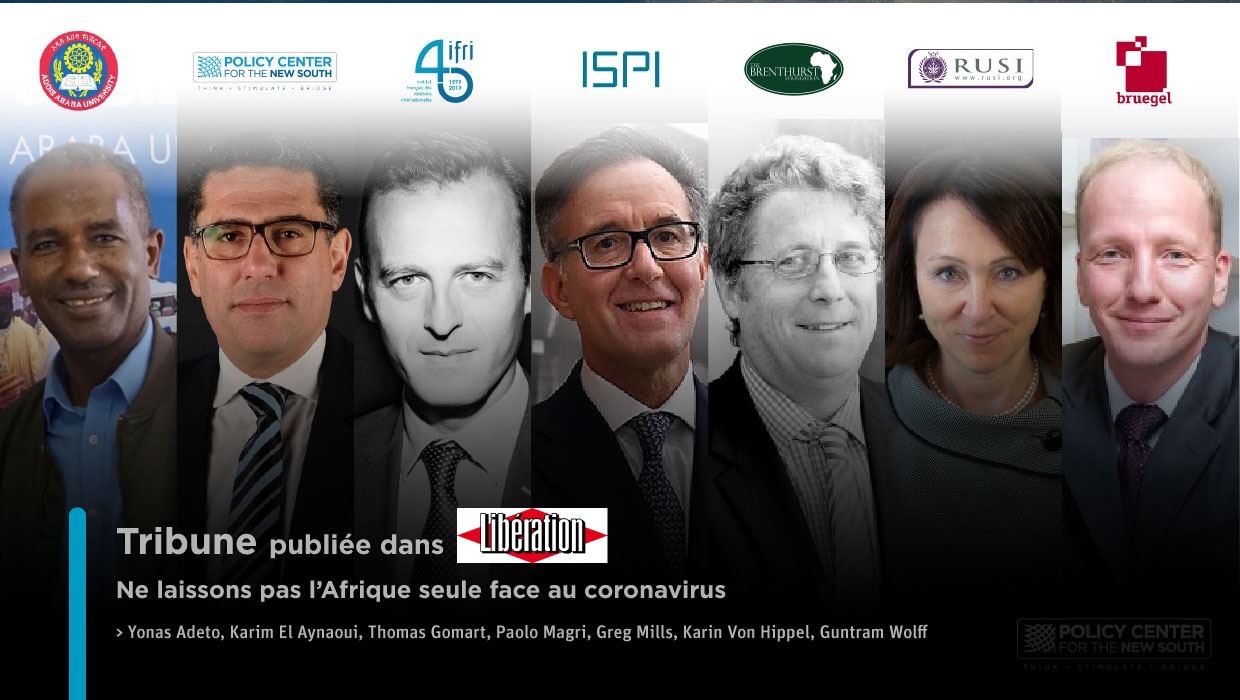Masques pour tous et revenu minimum : La riposte du Maroc face au Covid-19
Avec moins de 200 décès à ce jour, le Maroc a su enrayer l’épidémie de Covid-19. Mais le pays redoute une explosion de la pauvreté. Pour Karim El Aynaoui, président du Policy Center for the New South, il est essentiel de repenser l’économie marocaine.










.jpg)

.jpeg)

